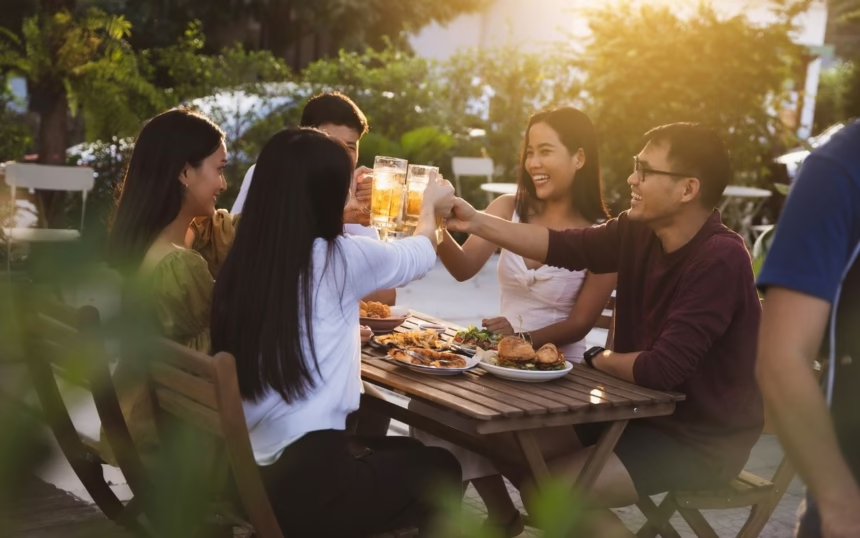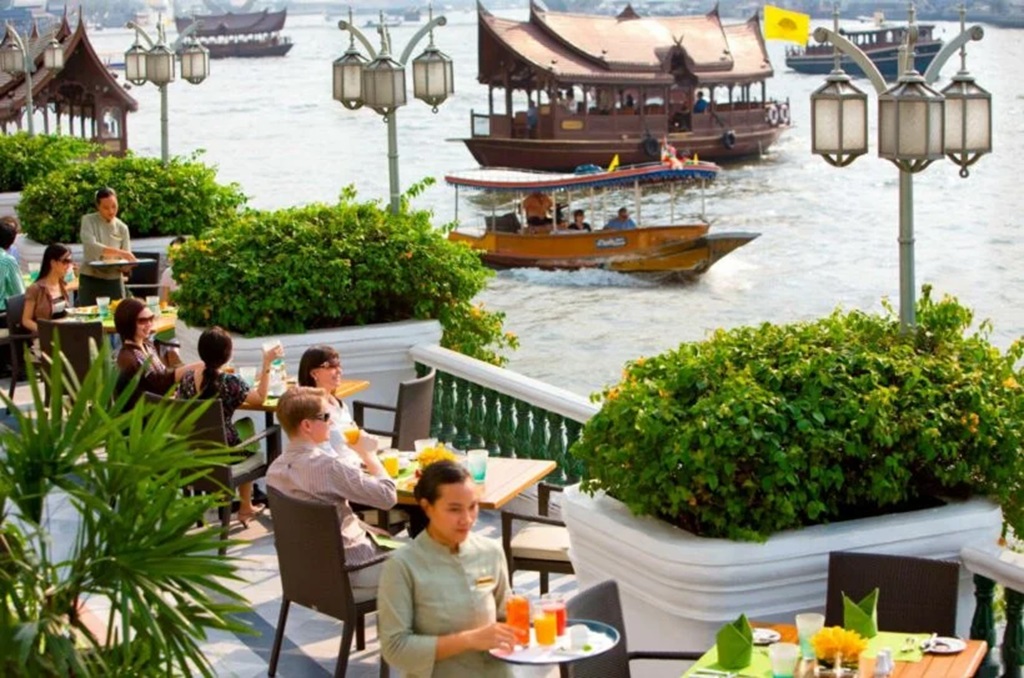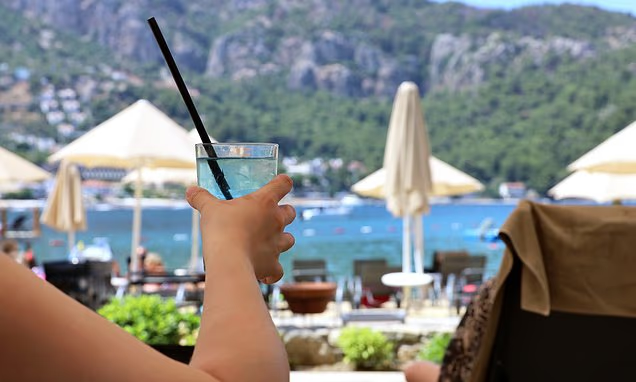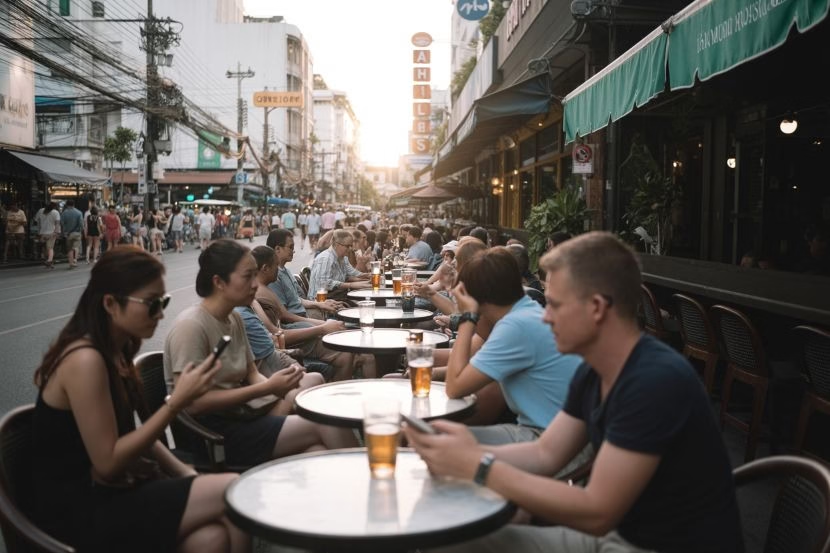BANGKOK – Picture this: You’re lounging by a Phuket beach bar, the sun dipping toward the horizon, waves lapping at your feet, and you order a crisp Singha to toast the end of a perfect day. Harmless, right? Not anymore.
As of November 8, 2025, Thailand’s revamped Alcoholic Beverage Control Act has flipped the script on the kingdom’s legendary nightlife, slapping individual drinkers – including blissfully unaware tourists – with fines starting at 10,000 baht (about US$300) for sipping during “prohibited” hours or spots.
Welcome to the Land of Smiles’ latest buzzkill, just as the November-to-April high season kicks off, promising a deluge of sun-seekers from Europe, Australia, and beyond.
The law, an amendment to the 1972 original, isn’t rewriting the calendar entirely. Alcohol sales have long been off-limits from 2 p.m. to 5 p.m. daily at most retail spots and eateries – a quirky holdover from Buddhist-inspired temperance efforts to curb midday mayhem.
But here’s the hook: Previously, only vendors got dinged for selling outside those windows. Now, under Section 32, consumers are fair game too. Order a beer at 1:59 p.m. and linger past 2 p.m.? Bam – that’s a violation, punishable by a fine up to 100,000 baht (US$3,000) in extreme cases, or even a brief jail stint.
Prohibited places? Think temples, schools, hospitals, public parks, or election days – no exceptions for foreigners flashing their passports.
Exemptions exist to soften the blow for Thailand’s tourism lifeline: Licensed hotels, certified beachside resorts, international airport lounges, and entertainment complexes in hotspots like Pattaya or Koh Samui can keep pouring from noon onward.
But for the average backpacker nursing a Chang at a Khao San Road street café or a family grabbing lunch in Chiang Mai?
One wrong gulp, and you’re haggling with a cop over a wallet-draining penalty. “It’s like putting a speed camera in front of a Ferrari – Thailand’s party vibe is its engine,” quips veteran expat bartender Mick Reilly, who’s slung drinks in Bangkok for 15 years.
“Tourists come for the freedom, not the fine print.”
The backlash is brewing faster than a Thai iced tea. Industry heavyweights, from the Thai Hotels Association to Phuket’s bar owners, are howling that this is a “step backwards” for a sector still clawing back from pandemic lows.
Tourism accounts for 20% of GDP, with 40 million visitors expected this year – many chasing the all-hours hedonism that made Thailand a bucket-list staple.
“We’re entering high season with handcuffs on,” laments Supaluck Srisuk, owner of a bustling Patong Beach lounge. “Locals skirt rules with hidden stashes; tourists won’t. We’ll lose tables – and tips – overnight.”
$300 Fines for Daytime Drinkers
On X (formerly Twitter), the outcry echoes: One viral post from travel influencer @Beach.Bum.Adventures rants, “Thailand’s new booze rules? $300 for a daytime beer? Hard pass – rerouting to Bali.” Hashtags like #ThailandBoozeBan and #DrunkOnFines are trending, with thousands decrying it as “puritan overkill” amid a global push for liberalized vibes post-COVID.
Critics aren’t mincing words. Opposition MP Taopiphop Limjittrakorn, a vocal booze liberalizer, blasted the act as pandering to anti-alcohol lobbies, arguing for 24/7 sales to match rivals like Singapore.
“This serves those opposing alcohol, not our economy,” he told Bloomberg. Public health advocates counter that it’s a necessary curb on binge culture, citing Thailand’s 20,000 annual alcohol-related deaths.
Yet, as one X user lamented, “Another reason tourism is collapsing – $300 fines for daytime drinkers? Absurd.” Polls on travel forums like TripAdvisor show 62% of respondents viewing the law as a deterrent, with “overly restrictive” topping complaint lists.
And then there’s the ripple effect: Vietnam, that emerald upstart to the east, is licking its chops. With Ho Chi Minh City’s Bui Vien Walking Street pulsing till dawn sans such draconian dings, and beach bars in Phu Quoc slinging all-day drafts for pennies, the shift is palpable.
“We’ve seen a 15% uptick in Thai-border queries since the news broke,” says Hanoi tour operator Lan Nguyen, whose agency reports a surge in redirects from Bangkok-bound Aussies. “Vietnam’s got the beaches, the beer towers, and no afternoon siesta for your Sangsom.”
Data from Booking.com hints at the trend: Searches for “Vietnam nightlife” spiked 28% in October, while Thailand’s dipped 11% among under-35s – the demo that fuels full-moon parties and rooftop raves.
For tourists, survival tips are simple but sobering: Clock-watch like a hawk. Stick to exempted enclaves, or embrace mocktails – Thailand’s got killer virgin mojitos anyway. Apps like “Thai Drink Timer” are popping up, buzzing warnings at 2 p.m. sharp. But the real question lingers: Will this sober up the fun factory, or just send revelers packing?
As Reilly sums it up, “Thailand sells dreams – don’t wake ’em with a fine.” High season’s here; let’s see if the party survives the pour.
Related News:
Chinese Tourists Once Loyal to Thailand Now Choosing Vietnam in Growing Numbers















